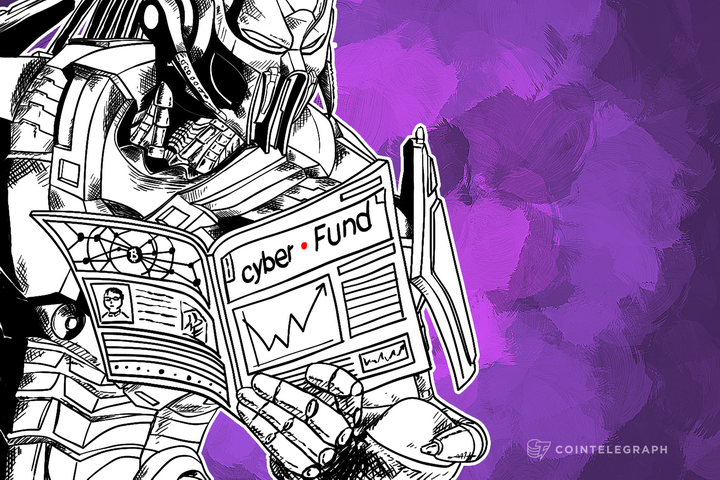Cyber•Fund says that Bitcoin will lead to a new cybernetic economy. In a quirky new report, the fund explores how far along this new economy has come and makes some interesting predictions.
“Cybernetic economy should multiply human wealth 10 times every 18 months,” cyber•Fund architect Dima Starodubcev said in the slide-show-style report. The report dives into the economy of DAOs (decentralized autonomous organizations), defined as a company that makes decisions and leads itself—Bitcoin is an example, and so are projects like Ethereum and NXT. The authors say the economy in the early stages, but that it will grow rapidly. By the end of 2014 there were 86 DAOs, 3.3 times the number of DAOs in 2013. They predict that the growth will continue.
The report explores the Bitcoin economy based on 2014 statistics and finds that Ethereum and MaidSafe are the most promising DAOs. Ranking is based on a five star system, from “Garbage” to “To the Moon.” The bulk of the platforms fall into the former while four are in the latter category. The criteria included adoption, liquidity, and the science and innovations fueling the project, however the full methodology will not be released until later this year. Because of these competing projects, Bitcoin's share of the cybereconomy dropped by 9.71%.
Based on the growth of these self-organizing technologies, the report makes some bold claims about where the economy is headed. Starodubcev wrote:
“There is no need for the CEOs and the presidents anymore.”
Applications that rely on these autonomous platforms, known as DApps, increased in the past year as well. Interestingly, NXT has 16 DApps built on top of it, far surpassing any of the other platforms, including Bitcoin (2) and Counterparty (4).
Check out the report for graphs and diagrams illustrating these statistics. The offbeat report also features a quote from Al Gore admitting he's a "huge fan of bitcoin," pictures of President Barack Obama and Vladimir Putin crying, and Big Bang Theory GIFs.
cyber•Fund claims it is the first distributed technology fund and has a mission of digital investments, like DAOs.
What's in store for 2015?
There are many trends to consider in 2015, according to the report. Currently there are 350 ATMs. They predict that the network will scale, perhaps to more than 10,000 ATMs in the years to come. Cyberlaw, which essentially means the use of smart contracts, will expand from an inner circle of geeks to early adopters, presumably following the pattern of diffusion of innovations.
And they make some other predictions as well, i.e. the “experimental transformations” of communities, like small islands, autonomous regions, and unbanked areas with uneducated populations.
By 2025, the report predicts that DAOs will reach mass adoption and will disrupt existing politics and religion. They go as far as to call the next evolutionary step “Homo Evolutis.”

Cybernetic economy: far beyond 2015
While cyber•Fund champions the simple goal of investments in the space, the report also suggests a more sci-fi-sounding economy down the line. The title of the report (Cybernetic Economy Report 2015) hints at this.
Starodubcev is writing “New generation cybernetic economic system,” an early draft of a white paper dedicated to the idea of an emerging cybernetic economy. (The authors caution that English is not their native language.) The chapter cybernetic economy vision predicts extremely high growth and disruption of everything from the government to the space industry. They predict the rise of some artificially intelligent network called the global brain.
The global brain is not a new idea and has been described in some capacity by a range of thinkers, from evolutionary biologist Herbert Spencer to World Wide Web inventor Tim Berners-Lee. The idea is basically that the world is growing more connected, with technology as a catalyst, and eventually all humans will be united by communications technology.
An emergent artificially intelligent network with Bitcoin at its core is surely a less familiar idea. With the world growing more and more connected, it's an interesting thought, if highly speculative. But the report doesn't dwell (or mention) these ideas, rather it uses graphs and statistics to build a case for the growth of so-called DAOs.
“Decentralized Application industry will be the fastest growing industry on the planet for the next 10 years,” said cyber•Fund creator, Konstantin Lomashuk.
Did you enjoy this article? You may also be interested in reading these ones:


